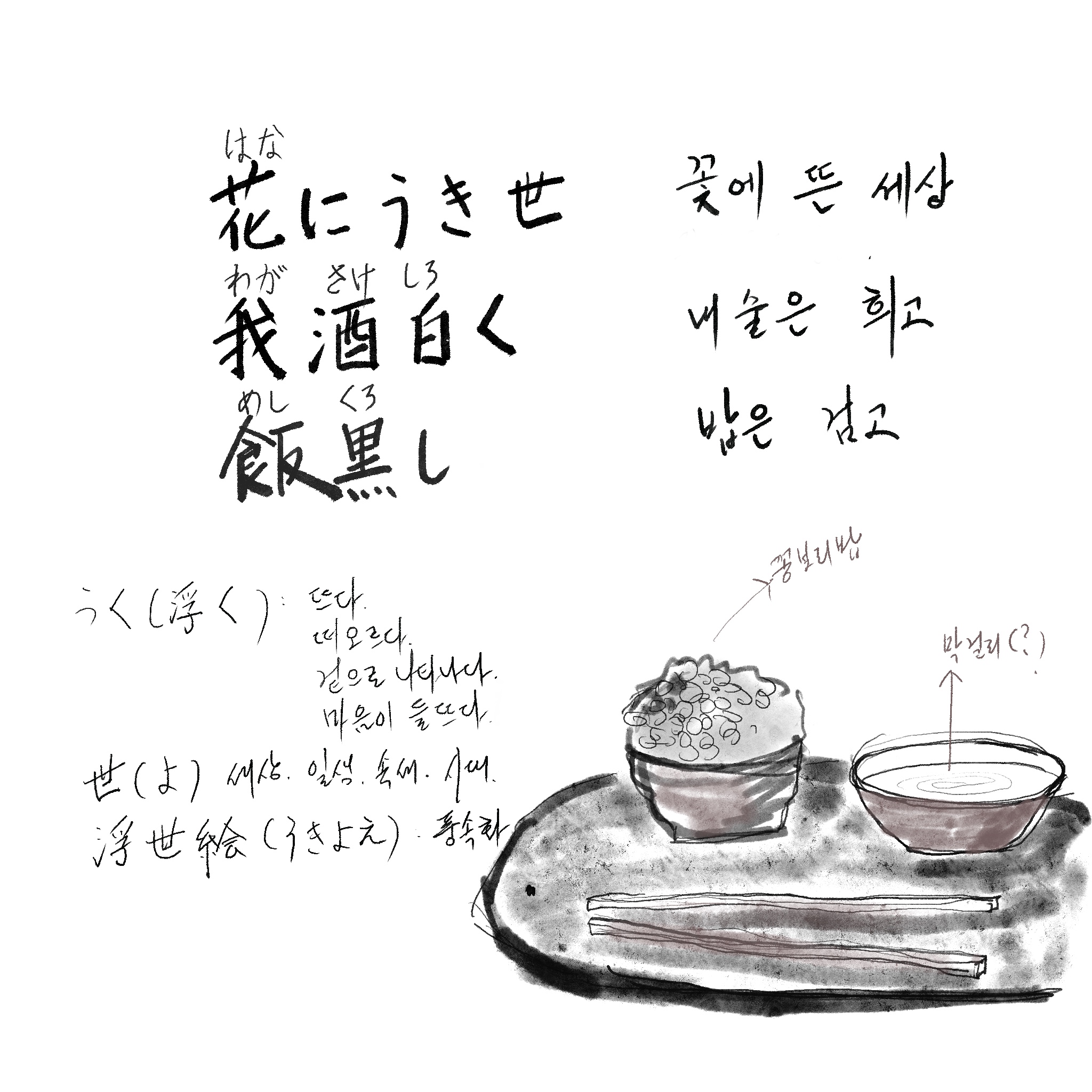
'◼︎매일조금씩배워보자 > Basho's Haiku 감상' 카테고리의 다른 글
| 藻にすだく (0) | 2025.07.16 |
|---|---|
| 雲とへだつ (kumoto hedatsu) (1) | 2025.07.09 |
| 春や来 (haru ya koshi) (0) | 2025.07.08 |

| 藻にすだく (0) | 2025.07.16 |
|---|---|
| 雲とへだつ (kumoto hedatsu) (1) | 2025.07.09 |
| 春や来 (haru ya koshi) (0) | 2025.07.08 |

| 花にうき世(hananiukiyo) (0) | 2025.07.17 |
|---|---|
| 雲とへだつ (kumoto hedatsu) (1) | 2025.07.09 |
| 春や来 (haru ya koshi) (0) | 2025.07.08 |
"雲とへだつ友かや雁の生き別れ"
kumo to hedatsu tomo ka ya kari no ikiwakare
1672. 29 Years Old
'구름과 헤어지는 친구여,
(이는) 기러기(같은)의 삶과 헤어짐'
---> 지금은 잠시 헤어지지만, 친구여, 다시 봄세 !!
To My Dear Friend saying Farewell to Clouds,
This is the living and parting of the Geese.

아무래도 이 시의 의미에는 같은 kari라는 발음을 가진 두개의 한자(仮,雁)를 염두에 두어야 할 거 같다.
かり [仮]
1.임시, 일시적.
2.진(眞)·친(親)…이 아님, 가짜. (=にせ)
3.가정(假定).
かり [雁·鴈] 명사 조류 기러기. (=雁)
kumo: cloud, the clouds
to: like, as (a particle of simile)
tama to chiru: scatter like beads. (smash to pieces)
tama : bead (s), chiru : to scatter, fall (drop)
hedatsu (rentai) «- hedatsu (yodan, vi.)
= hedataru (yodan, Modern Japanese):
to be away from
cf. hedatsu (shimo-ni, vt.) = hedateru (shimo-ichi, Mod. J.): to separate
tomo: a friend. It is considered that in this poem he refers to his friend in Iga: Magodayu according to "Eshiden" and "Seiden"
ka: an interrogative particle
ya: an exclamatory particle
kari= gan: a wild goose (geese) .
" kari" also means "temporary"
"kari no wakare" has a double meaning: the separation of wild geese and a temporary separation.
no: a possessive particle, of (but, no is used as a postposision -» of wild geese) .
iki-wakare: a separation while alive
iki (renyo) «- iku (kami-ni) = ikiru (kami-ichi, Mod. J.): to live
wakare (renyo) *- wakaru (shimo-ni) = wakareru (shimo-ichi, Mod. J.): to part
Both iki and wakare are renyo-kei forms and are used as verbal nouns
(gerunds).
| 花にうき世(hananiukiyo) (0) | 2025.07.17 |
|---|---|
| 藻にすだく (0) | 2025.07.16 |
| 春や来 (haru ya koshi) (0) | 2025.07.08 |

| 花にうき世(hananiukiyo) (0) | 2025.07.17 |
|---|---|
| 藻にすだく (0) | 2025.07.16 |
| 雲とへだつ (kumoto hedatsu) (1) | 2025.07.09 |